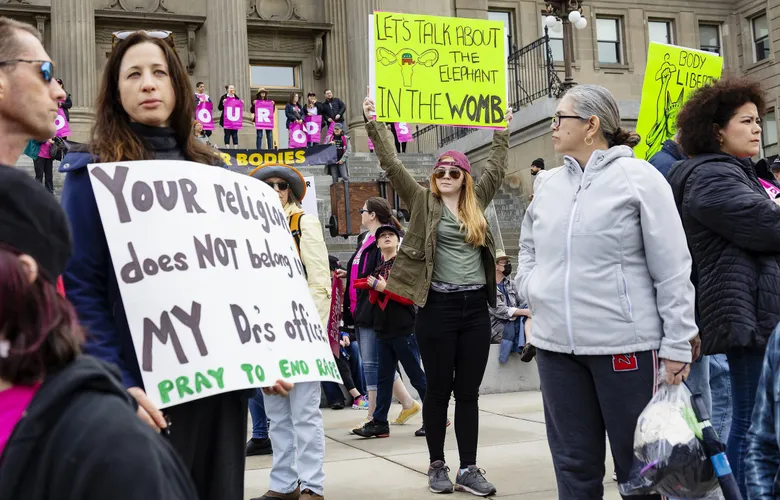
The Supreme Court of Idaho has ruled tha
The Idaho Supreme Court ruled late Friday that the state's nearly complete ban on abortion can take effect at the end of August while legal challenges to the restrictions are examined.
The ban will go into effect as a result of the decision on August 25.
The Court's ruling was based on three cases brought this year to prohibit three Idaho statutes from going into effect if the U.S. Supreme Court overturned Roe v. Wade, which it did in June. The lawsuits were brought by a local doctor and a Planned Parenthood branch. The petitioners had pleaded with the court to hold off on enforcing the ban on abortion until the lawsuits were resolved.
Although physicians may use rape, incest, or an attempt to save the life of a pregnant woman as a defense in court, the first lawsuit sought to stop a statute that would make it a crime to conduct an abortion. Another lawsuit aimed to overturn a rule that makes abortions illegal after six weeks of pregnancy. The chapter had also filed a lawsuit against a legislation that sets up a prize of at least $20,000, plus legal expenses, within four years following an abortion and permits family members of an embryo or baby to sue the abortionist.
Although some states have outlawed abortion from the moment of conception and imposed severe fines on abortionists, the federal government claims that Idaho's statute violates federal rules by failing to provide treatment when a pregnant woman's health is in danger. In a rare move, the Department of Justice sued the state directly in federal court and requested that the law be suspended. On August 22, that case is due to be heard in federal court.
The three state lawsuits were combined into one case by Idaho's highest court. The laws, according to the petitioners, were unconstitutional at first. They claimed that the laws broke the Idaho Constitution and the Idaho Human Rights Act after Roe was overturned. However, the court decided that the laws could go into effect because the petitioners were unable to demonstrate that their enforcement would result in "irreparable harm." The judges continued by saying that the petitioners had not shown a "substantial possibility of success" in their attempt to have the statutes struck down.
Together with Chief Justice Richard Bevan and Justice Gregory Moeller, Justice Robin Brody authored the majority opinion. "What petitioners are seeking this Court to eventually do is to proclaim a right to abortion under the Idaho Constitution when – on its face — there is none," they said. In actuality, abortion was a long-standing criminal felony in Idaho until Roe declared a federal constitutional right to it in 1973.